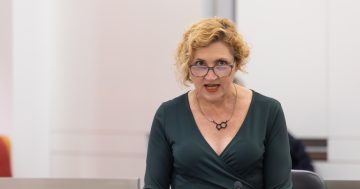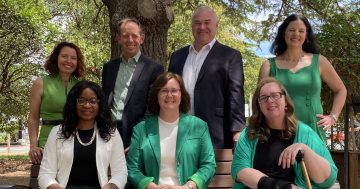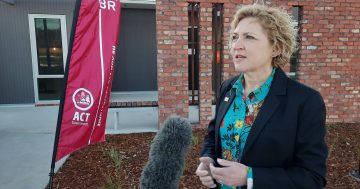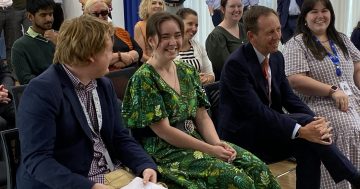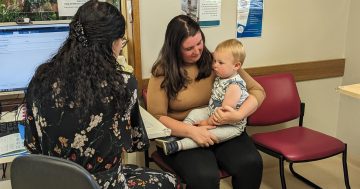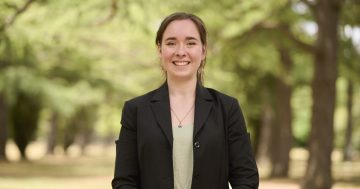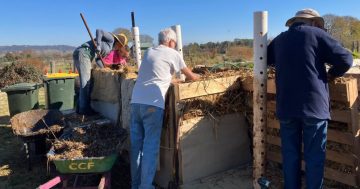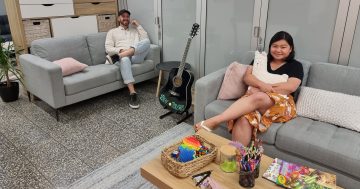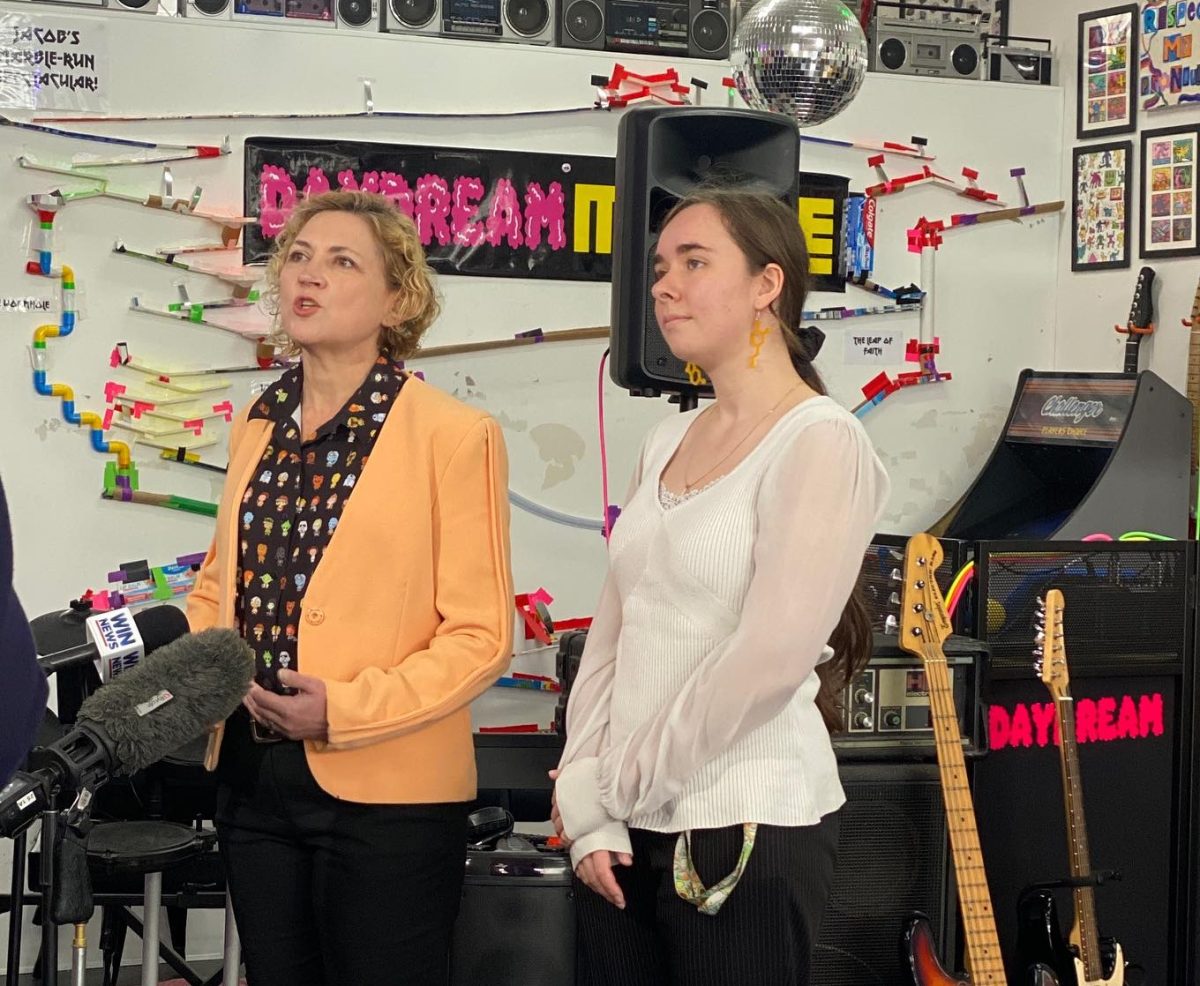
ACT Greens disability spokesperson Emma Davidson (left) and Brindabella candidate Laura Nuttall announce the party’s election policy in Fyshwick. Photos: Facebook/Daydream Machine.
A specialist centre to provide free support to neurodiverse people, even before diagnosis – that’s the latest election policy from the ACT Greens.
The centrepiece of the party’s disability strategy is a $15 million Neurodiversity Centre, which is envisaged to be a one-stop shop for free information for people with autism and ADHD, a space where peer groups can meet, and where people can access allied health support such as speech therapy, occupational therapy and psychologists.
It would all be publicly funded to the tune of $5 million a year, with further detailed costing to be completed before the October election.
ACT Greens disability spokesperson Emma Davidson said access to support was currently “way too difficult” for neurodivergent people.
“At the moment, the pathway to service and getting the supports that you need by getting a diagnosis, that can take a long time in the private system and be very expensive,” she said.
“There’s a lot of people who are being pushed into a diagnosis pathway as a way of accessing support. What we want to do is separate those two things.
“What we’re saying is that there should be access to supports early on, before you’ve even thought about getting a diagnosis … the diagnosis can come when people are ready for it.”
The vision is to have the space centrally located and easily accessible by bus or light rail. It would be co-designed with those with lived experience, advocates and service providers.
Asked where the Greens would find the people to staff such a facility – which the party hopes would be delivered in the next term of government – Ms Davidson said the centre’s uniqueness would be an attractive factor.
“Our Neurodiversity Centre is a first in Australia,” she said.
ACT Greens MLA and Brindabella representative Laura Nuttall is neurodivergent herself, having received an ADHD diagnosis in recent years.
She described receiving a diagnosis and accessing support as a “discouraging, exhausting process” and said having a centre such as the one being proposed by her party would have been an “absolute game-changer”.
“I went through the months of waiting, forked out roughly $600 and had some personally challenging discussions, to be told that I did in fact have ADHD and could finally start getting help,” Ms Nuttall said.
“This system we’re proposing, that provides support before you even need to go through the diagnosis process, means people get help straight away, and I’m so excited that the Greens would make that happen in the ACT.”
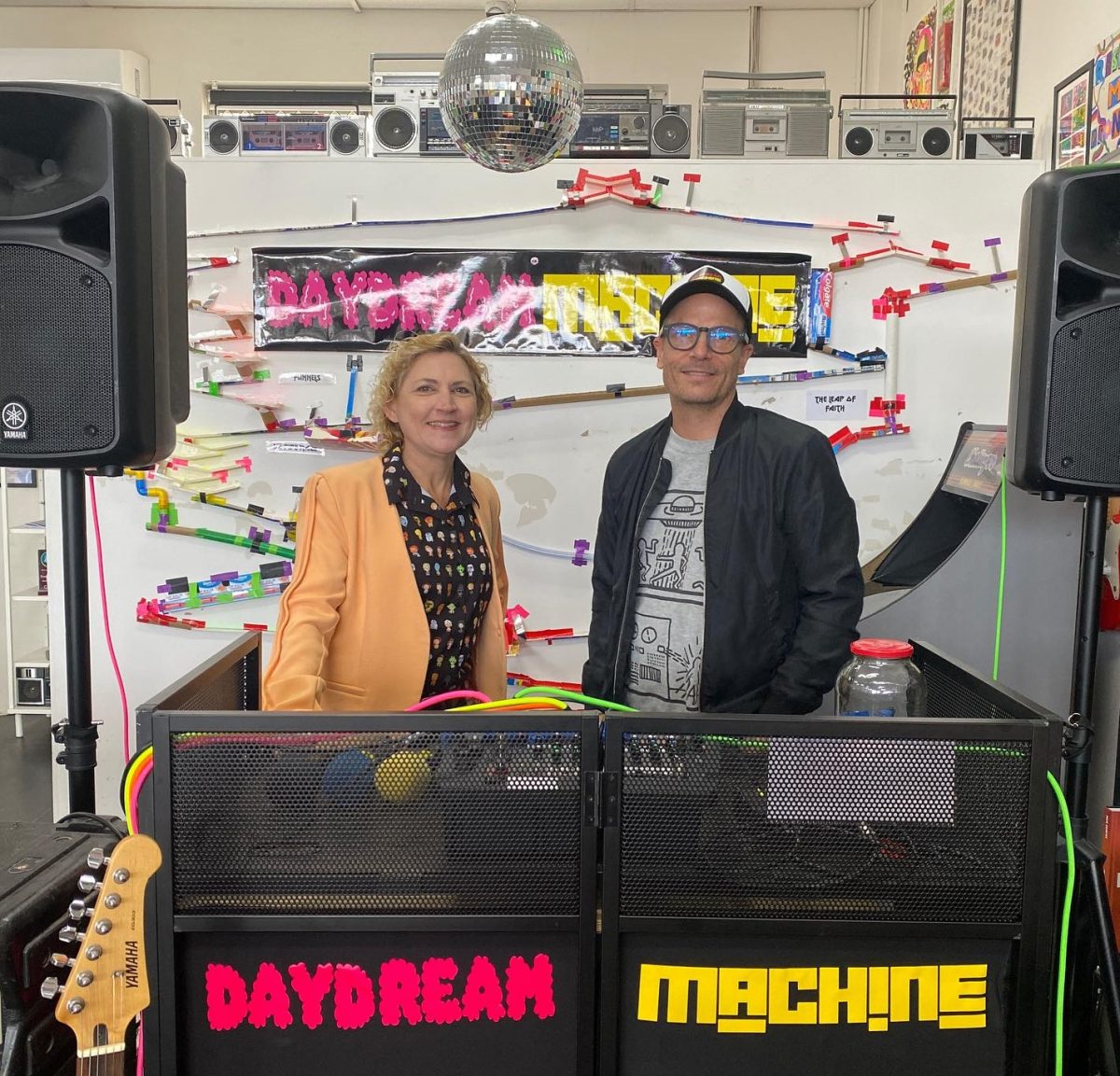
Daydream Machine founder and 2022 ACT Local Hero Luke Ferguson (pictured with ACT Greens MLA Emma Davidson) supports the idea of a Neurodiversity Centre.
Involving people with lived experience in the design process is one of the plan’s aspects that has been described as a “no-brainer” by Daydream Machine founder Luke Ferguson.
His facility provides music, art and technology programs to young neurodivergent people and was designed with their input.
Mr Ferguson said young neurodiverse people had the “best ideas”, and consultation would also give them agency over the space.
“They’ll call it as it is, there’s no black and white, so it’s refreshingly honest and that’s the beauty about working with neurodiverse people,” he said.
“Get them involved in every step of the way.”
But questions about the policy have already been raised.
ACT Labor health spokesperson Rachel Stephen-Smith said it was clear there were challenges for neurodiverse people to access services and support, but wondered whether a dedicated centre was the best approach.
“On the details provided in the press release, it’s unclear how the ACT Greens have costed this proposal, but it appears significantly under-costed for the extent of services described,” she said.
“Across the ACT, we have – and are building more – community-based health centres and facilities that would be able to accommodate more services in an appropriate and supportive environment.
”This may be a more appropriate way to provide consumers with access to services and wraparound support closer to home.”
The Territory Government is developing an ACT Neurodiversity Strategy.












